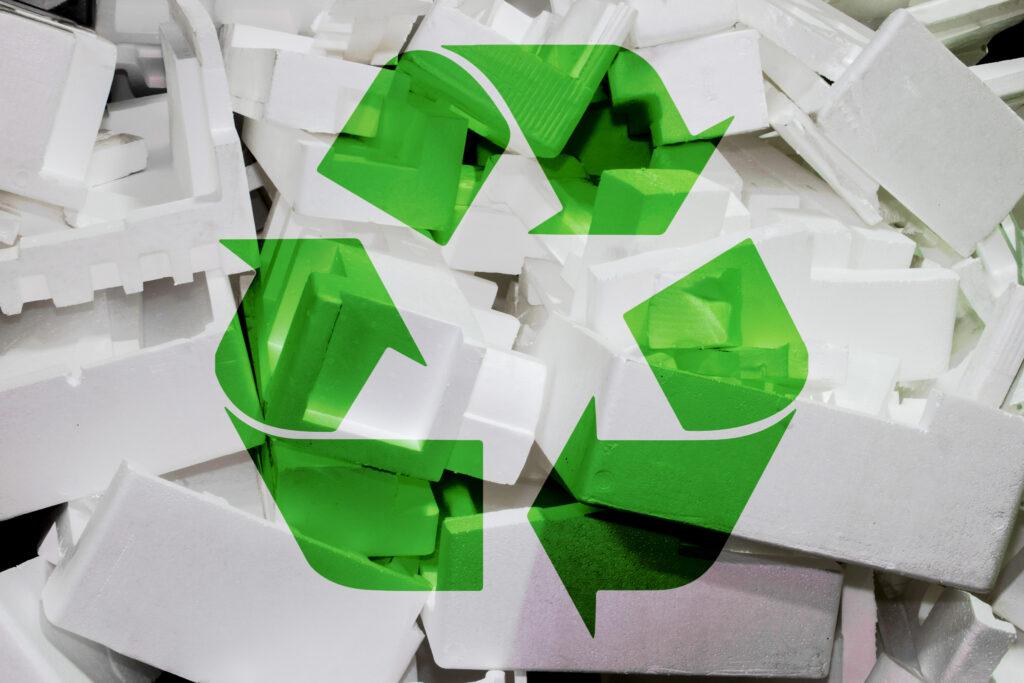Go Green, Recycle Polystyrene! Limpopo is Open for Business.
The bushveld is alive with birdsong, bubbling rivers, and wildlife calls, and E-Waste Limpopo wants to keep it that way. This local business has been cleaning up the environment since 2015, recycling old appliances and electronics to prevent toxic e-waste from damaging nature.
Three years ago, the business expanded and became the first company to recycle polystyrene in Limpopo. Since then, the dedicated owners and staff have collected over 5 tonnes of polystyrene, which is so lightweight that it took up almost an entire warehouse!
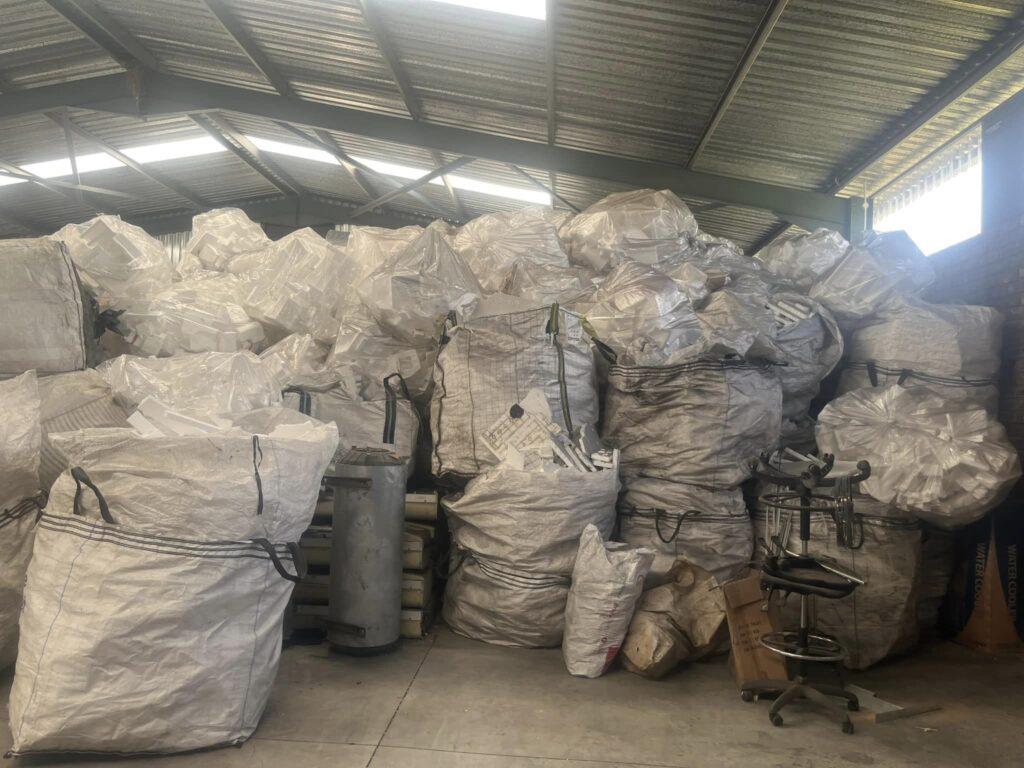
E-Waste Limpopo’s impressive polystyrene collection at their warehouse in Polokwane.
In March 2024, E-Waste Limpopo finally got the machinery to recycle all that polystyrene. This year, the company wants to expand its recycling efforts to make an even bigger impact. Besides preserving the planet, recycling polystyrene can help create jobs and fight back against poverty.
Recycling Puts Food on Family Tables
Empowering others has always been a big part of what E-Waste Limpopo does. Founder Fred de Wit started the company to help employees from his first business to increase their household income. He noticed many of their wives were looking for work, and thus E-Waste Limpopo was born.
The women Fred hired learned how to strip and sort electronics for recycling, and have since passed on their skills to many newcomers to the team. Today, E-Waste Limpopo employs mothers, fathers, sons, and daughters, supporting entire families through recycling.
They also work with about 250 local waste pickers. These recycling “agents” bring in e-waste in exchange for cash to help them earn a living. E-Waste Limpopo provides basic training and small tool sets to help their e-waste agents work safely and get the most value for their pickings.
Polystyrene recycling is next on the list. The pilot project is looking promising – their chosen recycling agents have already brought in over 100 kg of polystyrene combined.
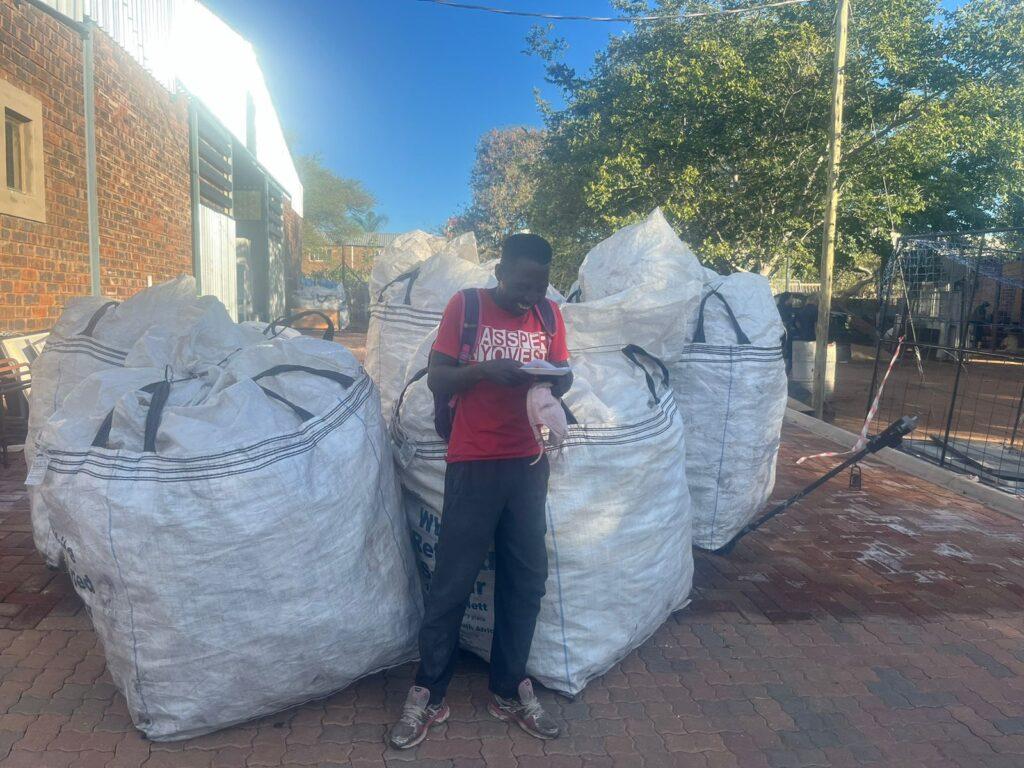
Lucky Magoma from Ext. 78, Polokwane was the first agent to bring in 50 kg of polystyrene.
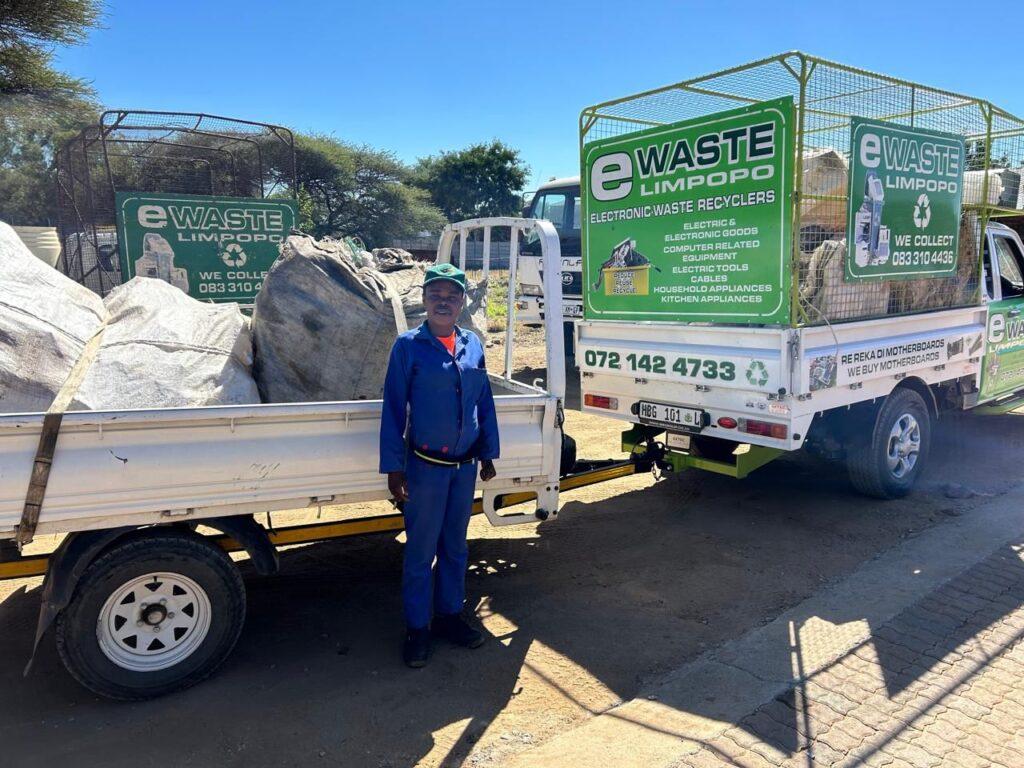
Edwina Pitseng from Luthuli, Polokwane collects her polystyrene from local landfills
How Does Polystyrene Recycling Work?
There is a general misconception that polystyrene is not recyclable. E-Waste Limpopo is just one of the many recyclers proving how valuable this material can be when handled correctly. Here’s how their polystyrene recycling process works:
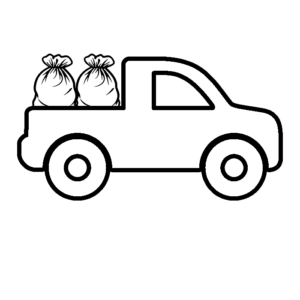
- COLLECT
First, E-Waste Limpopo collects polystyrene from businesses, households, and waste pickers. They provide selected recycling agents with white tonne bags and send a bakkie to collect them once they’re full. People also drop off polystyrene at their warehouse in Polokwane.
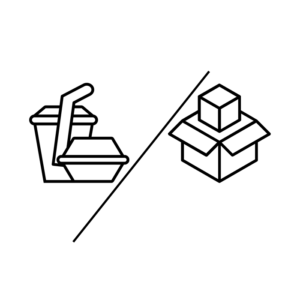
- GRADE
Recyclers at E-Waste Limpopo carefully sort the polystyrene by colour and type. They separate thick, bulky insulation and packaging from lightweight takeaway containers and cups. They also keep white polystyrene and black or grey polystyrene separate.
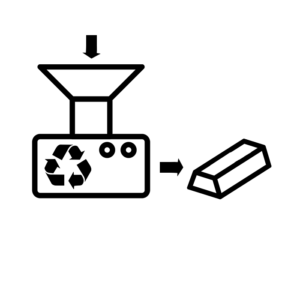
- MELT
Once sorted (and cleaned if necessary), the polystyrene goes through a recycling machine in batches. This machine melts the polystyrene and compresses it into small ingots. The recyclers must clean and maintain the machine between uses to ensure high-quality ingots.
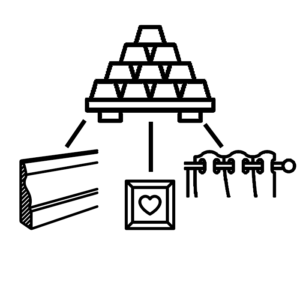
- MAKE
Finally, the polystyrene ingots go onto a big truck and travel from Polokwane to the Supreme Moldings factory in Cape Town. Here, they are processed into new products. Supreme Moldings uses them to make picture frames, cornices, curtain rails, and other décor items.
Don’t Forget About Bread Tags and Bottle Tops
On their mission to make a difference, E-Waste Limpopo has also partnered with The Sweethearts Foundation. This South African NGO recycles bread tags and bottle tops to raise money for wheelchairs for people with disabilities. The public can now drop off their bread tags, bottle tops, and takeaway coffee cup lids at the E-Waste Limpopo warehouse in Polokwane.
Once they have a big enough collection, they will take it to the Sweethearts’ chosen recycler in exchange for cash. 100% of the proceeds go towards buying wheelchairs for those in need.
Every Little Bit Counts! Here’s How to Get Involved
The new polystyrene recycling machine at E-Waste Limpopo can process over 200 kg of polystyrene per day. That means they’ll never collect too much to handle, and every contribution is welcome! Here are some examples of polystyrene items you can recycle:
- Takeaway containers and cups
- Void fills/packing peanuts
- Appliance and electronics packaging
- Fruit, veggie, and meat packaging
- Insulation boards
- Seedling trays
- Arts and crafts supplies
Remember, clean recycling is good recycling! If you want to collect polystyrene for E-Waste Limpopo, please give it a rinse and keep it in a separate rubbish bag to keep it clean and dry.
Businesses
E-Waste Limpopo offers a weekly collection programme for businesses that want to start recycling polystyrene. You will receive a destruction certificate to prove your responsible disposal of offcuts, waste, defective products, etc. E-Waste Limpopo is a fully registered e-waste and polystyrene recycling business backed by eWASA.
Households
Recycling polystyrene at home is easy. All you need is a separate bin/bag to collect your used takeaway containers and packaging until you’re ready to drop it off. There is no minimum weight requirement for drop-offs. The public can bring their recyclables to the E-Waste Limpopo warehouse at 53A Asbes Street, Laboria, Polokwane, from 8 am to 5 pm on Monday to Friday.
If you don’t want to drop it off or don’t have enough space to collect it, you can give your used polystyrene to local waste pickers instead. Either way, it will end up being recycled so long as it’s clean and dry! For more information, please email Cirienne at ewastelimpopo@gmail.com. For other areas, contact eWasa at info@ewasa.org
